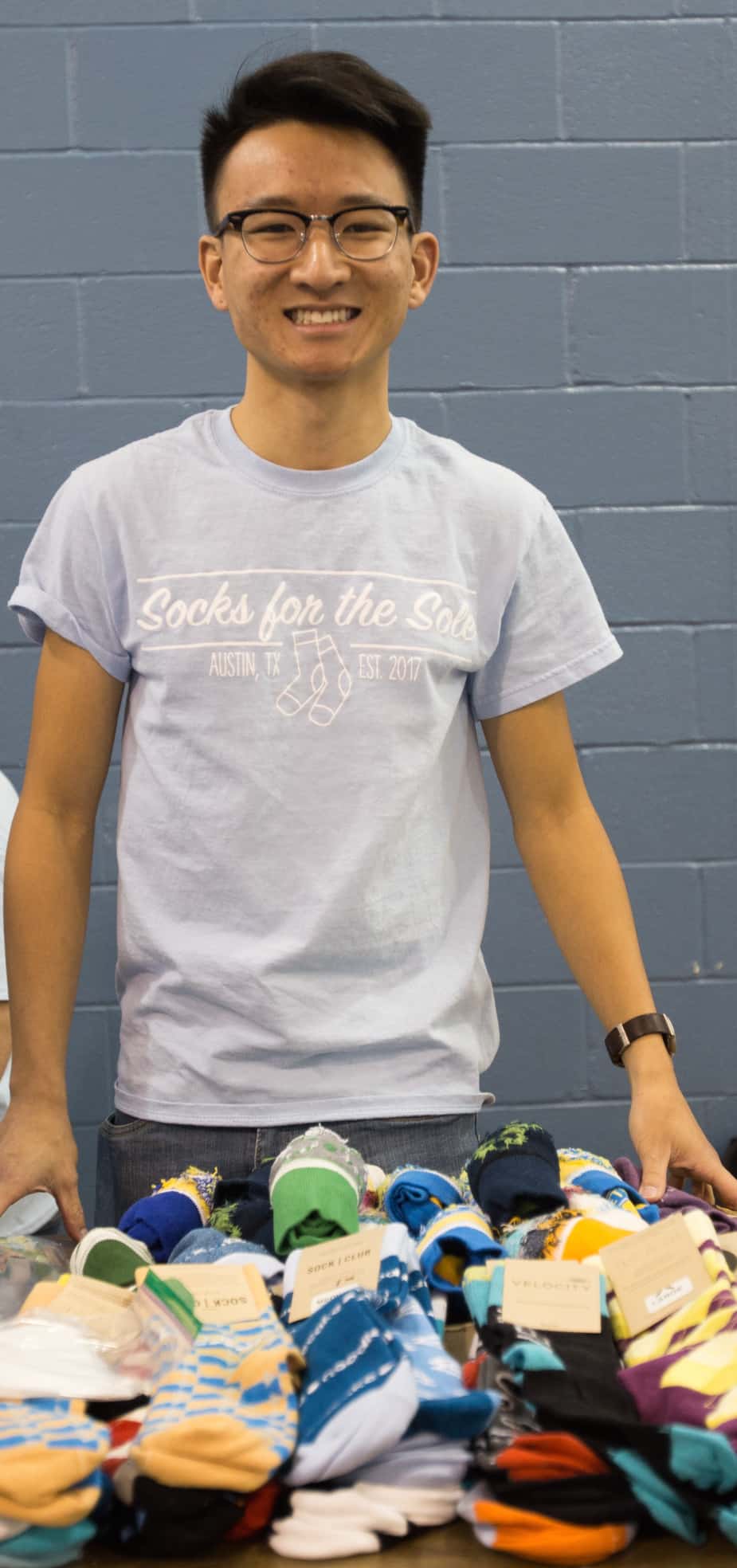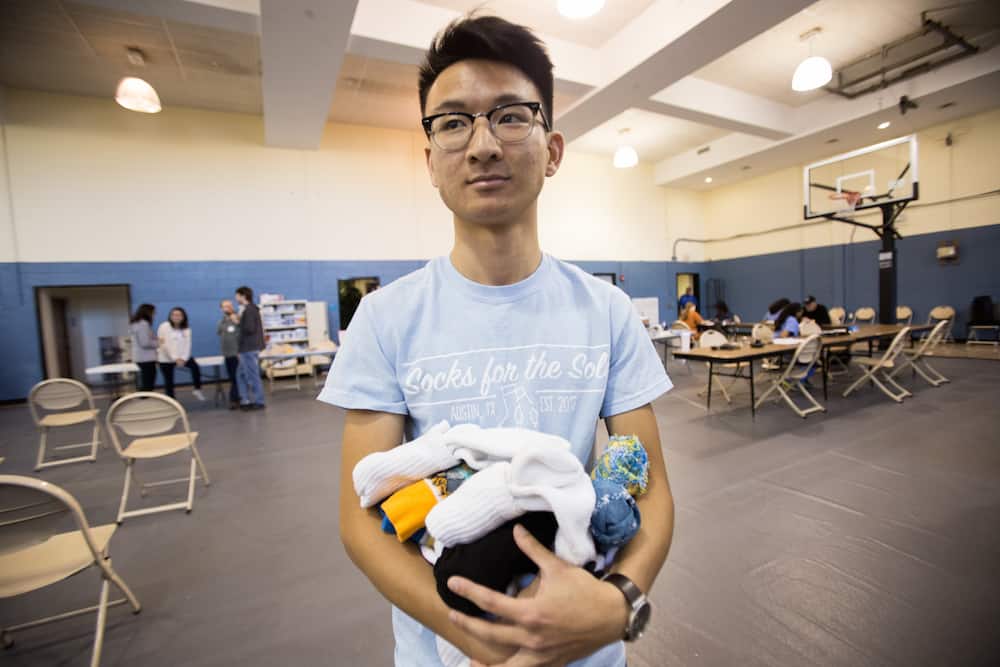It’s common for undergraduate students to join clubs and organizations to form a sense of who they are and to feel part of a bigger cause. Some might even start their own. But it is unusual for students to navigate the complex application process to found a 501(c)(3) non-profit, tax-exempt organization.

Social work junior Lu Tran did just that after volunteering with the C.D. Doyle clinic, a free, student-run clinic that serves homeless individuals in Austin.
“It was really hard telling people all this information, to go to a doctor miles away or to one in Round Rock,” he said. “But I myself couldn’t do anything for them. Just giving people information was not enough for me.”
Tran began to brainstorm ways to do more. He had noticed that one thing repeatedly appeared on the donation requests for the C.D Doyle clinic: socks. That’s how he came up with the idea of Socks for the Sole, an organization that raises the funds to purchase socks for the homeless.
“I felt like that was a need all around the community,” Tran said. “None of the other nonprofits like the Trinity Center, ARCH, and Caritas have a steady sock supply, and I felt like that was a need we could fulfill as students.”
But then came the hard part. In order to accept monetary support from businesses, the organization needed official 501(c)(3) non-profit status. Tran met with students of other official non-profit organizations on the UT Austin campus, and found out that their paperwork had been completed by lawyers. He sought a quote from a law firm that specifically serves non-profit organizations, and the amount was $700.
“We told them we didn’t have $700, but even if we did, that’s 700 pairs of socks that we could buy instead,” he said.
So Tran set out to learn how to do it himself. After a long and confusing process, countless calls to the Internal Revenue Service, and hours spent on hold over the phone, he received the letter that they had been officially certified.
“I was super happy because that was such a huge hurdle for us to cross as an organization, but it shows our legitimacy and makes it easier for us to partner up with businesses to do what we do,” he said.
While Socks for the Sole accepts sock donations, the organization focuses its efforts on fundraising because sock drives tend to be unsuccessful — at least on college campuses, Tran said.
“People don’t go out to buy socks specifically to donate,” he explained.
While the non-profit raised enough money in Fall 2017 to reach their goal of purchasing 500 socks, a donation from local company Sock Club doubled their inventory. At the end of the semester, the non-profit purchased other care package supplies to include with the socks they delivered to homeless individuals at the C.D. Doyle clinic.
Students at other universities have already approached Tran to ask how they could start a chapter on their own campus. But when asked if he plans to expand the non-profit to have employees, his answer is that he’d like to keep it a simple UT Austin student organization that raises money to buy socks.
Tran hopes his organization inspires other students to think about how they can make an impact here and now.
“People think about doing something later on after college. But, we are in our twenties and in our peak years,” he said. “We have all of these resources here at UT, and we should do something. If 10 people can raise 1000 pair of socks a semester, then imagine if 5000 students got together.”
Text and photos by Lynda Gonzalez. Posted February 1, 2018.


